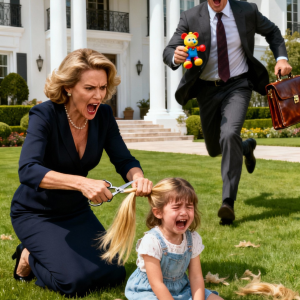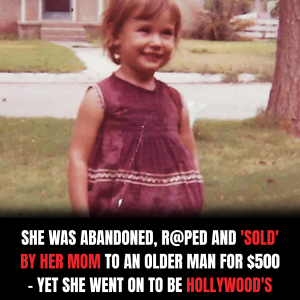Tantrums, anxiety, hiding real emotions, and low self-esteem — sadly, some parents manage to pass down all of these negative qualities to their kids.
Their egoism and indifference toward their children’s feelings make a huge impact on them in their childhood. As a result, kids start to criticize themselves, feel helpless, and have problems in their social lives.

1. You’re scared of manipulation.

It happens rather often that toxic families use manipulation to control other family members. On a daily basis, this behavior is not normal and turns into emotional abuse. This can make you feel like you trust the other people around you less and prevent you from having relationships. Feeling constantly manipulated by your family can also result in avoidance behavior.
2. You have difficulties with social interactions and trusting others.

When someone gets raised in a tense atmosphere, around manipulations and other mental abuse, it leaves its mark on this person. Some parents might not have been able to provide their child with the needed support, and in another scenario someone might live in a family where they feel they always need to be on guard.
Later it will become tough to shake the feeling that you constantly have to be in this state. At the end, you can develop difficulties with trusting other people and opening up to them.
Attachment problems are hard. By constantly seeing and experiencing physical and emotional abuse, mistreatment, and neglect, they form their own picture of relationships. These people might not understand what a caring and healthy connection between people looks like. They are always subconsciously waiting for everyone around them to either overreact, be demanding, blame them for something, or let them down.
3. You have a hard time with failure.

Kids raised in a toxic environment might constantly feel like they are always not good enough or even worthless. Their parents might have always made excessive demands on them and blamed them if they didn’t meet their expectations. Basically, they have developed low self-esteem and have a lack of self-care. That’s why the smallest mistake or failure can freak them out and lead to a tantrum.
4. Your sense of self-identity is lacking.

Positive family “esteem” is a critical element for us when we talk about our mental health. It’s just as important as the feeling of being loved and belonging. If the relationship between a child and their parents is abusive, then the child may start having problems with their inner world, their identity, and their self-esteem. This leads to negative effects like anxiety and even depression.
5. You criticize yourself a lot.

Low self-esteem, created by toxic parents, makes a child feel stupid, unworthy, and undeserving of getting something better. In anything these children do, they criticize themselves, hesitate, and have second thoughts. They have accepted that they are worse than others, which makes them mentally suffer, but they can’t change the situation, because they don’t receive the necessary mental support.
6. You put your emotions last.

Verbally or physically abusive parents neglect their children’s emotions. In addition, if children try to express their emotions, it can lead to more mistreatment from the family. As a result, kids get used to hiding their pain, resentment, and anger. Further down the road in their lives, they might start prioritizing others’ emotions above their own.
Suppressing emotions also takes its toll on the self-identification of a person. They find it hard to understand who they are, how they feel, and what they want in their life. So, they fail to develop themselves in the spheres of life that are important to them because, mentally, they are always held back by uncertainty and a previous lack of closeness.
7. You always feel like a helpless child.

Toxic parents sometimes refuse to acknowledge their child as an adult. No matter how old a child gets, these parents might always try to treat them like a helpless infant. They want to control and command, and if they face any resistance, they will act offended to make their child feel guilty.
If a child is not allowed to make their own decisions, gets their privacy invaded, and doesn’t feel like an independent person, it can be harmful to their mental health. They can develop anxiety, be scared of starting something new, and not be able to fit into society.
8. You often feel anxious.

Children who come from toxic families often get diagnosed with anxiety disorders. This happens because of family instability, mental and physical mistreatment, and a lack of security. Children with anxiety experience difficulties with concentrating, and may experience feeling irritable, restless, worried, and tense.
Have you noticed any of these traits in your parents? Have you experienced any of these signs? Let’s share our stories in the comment section.




